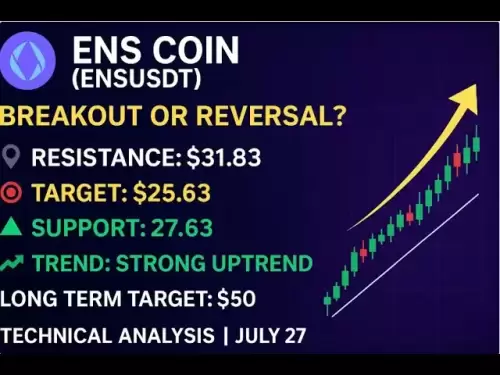 |
|
 |
|
 |
|
 |
|
 |
|
 |
|
 |
|
 |
|
 |
|
 |
|
 |
|
 |
|
 |
|
 |
|
 |
|
Cryptocurrency News Articles
Navigating the Crypto Tax Maze: DeFi Transactions and Tax Compliance in the US
Jul 22, 2025 at 01:39 pm
Stay ahead of the curve on crypto tax reporting in the US! Understand the latest IRS moves, DeFi complexities, and how to stay compliant.

The world of crypto taxes is constantly evolving. Recent developments, like the US Treasury's move to repeal a controversial crypto broker rule and the IRS's increased scrutiny of crypto investors, highlight the complexities of navigating DeFi transactions and maintaining tax compliance.
US Treasury Backpedals on Strict Crypto Tax Reporting
In a surprising turn of events, the US Treasury has decided to repeal TD 10021, RIN 1545-BR39, a rule that sent shivers down the spines of DeFi enthusiasts. This rule, had it taken effect in 2027, would have imposed extensive new requirements on crypto vendors, essentially forcing them to act as registered brokers. Imagine the burden on DeFi!
The good news? It's gone! President Trump pushed for the repeal, and it finally went through. The community's reaction? A collective sigh of relief. While some argue that the rule's implications were overblown (it focused on front-end services, not code itself), the repeal signals a friendlier stance towards crypto innovation.
This move aligns with a broader trend of pro-crypto regulations in the US. Enforcement agencies are exposing past mistreatment of the industry, the Federal Reserve is loosening restrictive rules, and now the Treasury is reversing course on tax reporting. It's a whole new ballgame!
IRS Steps Up Crypto Tax Enforcement
While the Treasury is easing up on some regulations, the IRS is ramping up its enforcement efforts. CoinLedger CEO David Kemmerer reports a staggering 758% spike in IRS warning letters to crypto investors in the past two months. Ouch!
This surge comes ahead of the new 1099-DA reporting rules, set to kick in January 2026. These rules will require crypto brokers to report both the gross proceeds and cost basis of digital asset sales, giving the IRS a much clearer picture of investor activity. No more hiding those gains (or losses!).
The letters themselves vary in severity, but even compliant taxpayers can receive them due to simple cost basis errors, especially from wallet-to-wallet transfers. These transfers aren't taxable, but they're often misreported.
DeFi Transactions: A Tax Compliance Minefield
DeFi transactions add another layer of complexity to crypto tax reporting. The decentralized nature of DeFi makes it challenging to track transactions and determine the correct tax implications. From staking rewards to yield farming, each activity has its own set of rules.
The IRS's increased scrutiny highlights the importance of accurate record-keeping and understanding the tax implications of your DeFi activities. Ignoring these responsibilities can lead to penalties and unwanted attention from the taxman.
Staying Compliant: Tips for Crypto Investors
So, how can you navigate this complex landscape and stay on the right side of the IRS?
- Keep meticulous records: Track all your crypto transactions, including dates, amounts, and the value of the assets at the time of the transaction.
- Understand the tax implications of different crypto activities: Research the tax rules for staking, lending, yield farming, and other DeFi activities.
- Use crypto tax software: Consider using software like CoinLedger to automate the tax reporting process and minimize errors.
- Consult with a tax professional: If you're unsure about any aspect of crypto tax reporting, seek guidance from a qualified tax advisor.
The Bottom Line
The world of crypto taxes is constantly changing. While the US Treasury's recent actions offer some relief, the IRS is stepping up its enforcement efforts. Staying informed, keeping accurate records, and seeking professional guidance are essential for navigating the complexities of DeFi transactions and maintaining tax compliance. Don't get caught in the crypto tax maze – be prepared!
So there you have it, folks! Crypto taxes might seem like a headache, but with a little knowledge and the right tools, you can conquer them like a Wall Street pro. Now go forth and trade (responsibly, of course!), and remember, Uncle Sam always gets his cut... eventually.
Disclaimer:info@kdj.com
The information provided is not trading advice. kdj.com does not assume any responsibility for any investments made based on the information provided in this article. Cryptocurrencies are highly volatile and it is highly recommended that you invest with caution after thorough research!
If you believe that the content used on this website infringes your copyright, please contact us immediately (info@kdj.com) and we will delete it promptly.






























































